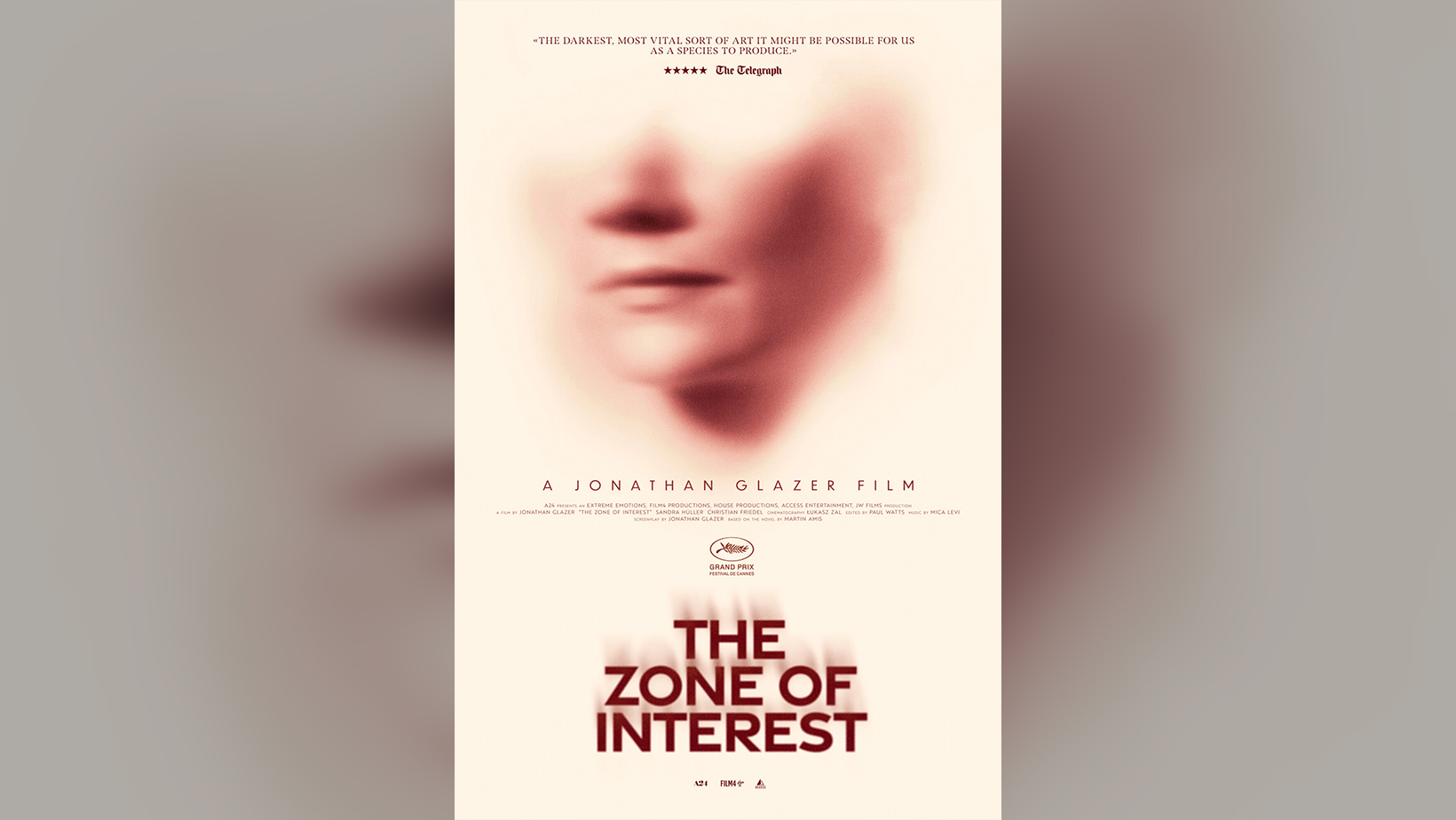
Jonathon Glazer’s latest directorial offering, The Zone of Interest (2023) is an understated, yet powerfully urgent warning of how easily humanity can be lost if we are allowed to lose ourselves to unquestioned, hateful dogma, at the exclusion of all else.
On the face of it, if the viewer knew nothing of history or the film’s setting, The Zone of Interest could be seen as a mere domestic drama. Slowly played out, the film is concerned with the stresses of raising a family, succeeding at work, and holding on to a patch of happiness that the protagonist has so fortunately been able to cultivate. The protagonist, in this case, however, is Rudolf Hoss, the Commandant of Auschwitz.
Similar to Glazer’s other literary adaptions (Under the Skin 2013), he utilises only the broad ideas at play within Martin Amis’s source novel. The minutia of the characters’ domestic issues are only hinted at, preferring to focus on the greater themes within the text.

Like a piece of art, mounted within a frame, the Hoss family life is portrayed as idyllic, by way of an indoctrinated acceptance of the almost unimaginable suffering that surrounds them. The industrial genocide sustains the paradise, to which they believe they are entitled, as a reward for their unquestioning devotion and belief in National Socialism.
Beautifully shot in every scene, The Zone of Interest is artfully lit and symmetrically framed, recalling a less frivolous and far more serious Wes Anderson. Like earlier Holocaust films, such as Laszlo Nemes’ Son of Saul (2015), Glazer never points the camera directly at the large-scale suffering but, unlike Nemes, he rarely focuses on facial expressions. Instead, Glazer opts to highlight interior spaces, buildings, or natural landscapes that the Hoss family occupies. The film is concerned with the zones in which they live, the area in which the apparent domestic normalcy plays out, which is constantly contrasted with the horrors that are ever present at the edges. Glazer allows the affront to humanity, out of sight at the periphery, to seep into the domestic scenes at the film’s centre.

The Hoss’ Eden is bordered by barbed wire fences, with guard towers and the camp’s ominous brick buildings always visible. The plumage of steam, tracking across the horizon, indicates the arrival of trains and their ill-fated cargo, and the roar of the furnaces adds a stygian glow to each night. There is no soundtrack, but the sounds of gunfire, screams, and mechanised, large-scale murder often reverberates nearby, cutting across the otherwise peaceful bird song and hum of nature. The film’s diegetic sounds are dispersed with brief, deep blasts of unsettling tonal pieces that reverberate with a threatening unease, an aural representation of the natural sickening response to the normalisation of genocide. Boots are cleaned of blood, stolen clothing, and jewellery are handed out, and all characters are scrubbed clean having inadvertently encountered the sinister byproducts of the camp, to which they are all utterly devoted and dependent on.
The characters are well-acted and realistically underplayed. The urban banality only highlights their eerily uncanny everyday concerns, enveloped, as they are, by the nadir of humanity. Rudolf, played by Christian Friedel, shows a sincere love of his horse and true compassion towards strangers’ dogs, all juxtaposing his coldly efficient administration of Hitler’s Final Solution. The seemingly detached, everyday activity of Hoss and his family, is the very embodiment of what historian and philosopher, Hannah Arendt, described as The Banality of Evil.

The small acts of kindness, attempted at night by a local servant girl, are shot in a harsh, possibly heat-based, film that inverts black and white like a negative, making her actions stand out as alien within the film’s wider, bleaker landscape. Such small kindness is only later revealed to be the inadvertent cause of more death, overheard by one of the Hoss children, whose reaction is upsettingly matter-of-fact.
As The Zone of Interest develops, the protagonists could be seen to suffer some side effects at having normalised the obscene situation. The visiting mother-in-law leaves unannounced, having witnessed the furnace’s nocturnal activity, and Hedwig Hoss, played by Sandra Huller, lets slip a dark threat that reveals her full knowledge of the camp’s activities. Even Rudolf, suffering some internal malady, pauses during his descent of a darkened staircase while the viewer is shown artifacts, displayed at the modern-day Auschwitz Museum, being moped, and wiped by cleaning staff. We’re left to ponder if his physical sickness might be in some way due to his actions, and how, possibly, Hoss might somehow grasp some concept of what he is a part of, and what his actions will ultimately achieve.

More Film Reviews
Buffet Libre (2025) Film Review – The Secret Ingredient is Murder [Another Hole in the Head Film Festival]
Buffet Libre marks the third feature film from actor/director Zoe Berriatúa, and his first dive into more macabre subject matter. Here, the story follows an older Chinese couple, Xian (Yan…
Street Trash (2024) Film Review – Explosive Social Commentary
In the dystopian landscape of Cape Town, South Africa, Ryan Kruger’s 2025 sequel to Street Trash (1987) takes viewers on a gore-filled adventure through the perils of class warfare in…
Thorns (2023) Film Review – Natural Thorn Killer [FrightFest]
Thorns (2023) is an American sci-fi horror film written and directed by Douglas Schulze. Well-versed behind the camera, Douglas is most known as the writer/director of such films as Hellmaster…
Martyrs Lane (2021) Film Review – Emotionally Charged Gothic Horror
After screening at the 2021 Fantasia Film Fest, Ruth Platt’s Martyrs Lane was scooped up for distribution on Shudder. With the streaming service having recently picked up standouts in nuanced horror…
Return of the Living Dead (1985) Film Insight – Truth, Lies and More Brains
A film that begins by claiming everything we are about to see is based on true events, and ends with an imminent Apocalypse, puts the viewer in a strange…
Fear Street Part One: 1994 Film Review – Nostalgia Soaked Horror
Ten years ago in 1994, I was walking into the local bookstore to pick the new…wait….that was 27 years ago? Fine then, I will start over. Almost 3 decades ago,…

![Buffet Libre (2025) Film Review – The Secret Ingredient is Murder [Another Hole in the Head Film Festival]](https://www.grimoireofhorror.com/wp-content/uploads/2025/12/Buffet-libre-cover-365x180.jpg)

![Thorns (2023) Film Review – Natural Thorn Killer [FrightFest]](https://www.grimoireofhorror.com/wp-content/uploads/2023/07/Thorns-cover-photo-365x180.jpg)


